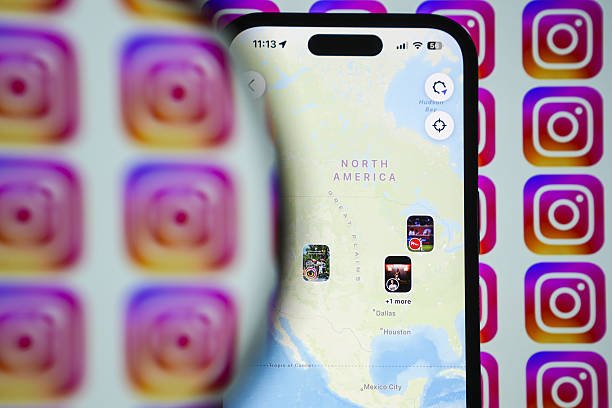Instagram recently rolled out a new “Map” feature that lets users share their real-time location with friends. But despite 170 million people having access to it, the Map feels eerily empty. Is this a privacy concern, a failed experiment, or just another case of users resisting Meta’s latest push?
A Ghost Town in the App
When I turned on Instagram’s location-sharing feature, I expected to see friends popping up across the map. Instead, I found only one person – an old coworker I hadn’t spoken to in years.
“I pretty much wanted to see what the feature was, and was pretty much disappointed. Lol,” he told me after realizing he was accidentally broadcasting his exact location.
This seems to be the trend: most users either don’t know the Map exists, don’t trust it, or simply don’t care.
Why Are People Skeptical?
Instagram’s Map isn’t entirely new – snapchat has had a similar feature for years. But Meta’s track record with privacy has left users wary.
- Past Scandals: Facebook’s history of data leaks and fines makes people hesitant to share real-time location.
- Confusing Controls: Many users didn’t realize their past location-tagged posts automatically appeared on the Map.
- Safety Concerns: Stalking, unwanted attention, and social pressure make constant location-sharing unappealing.
Even Instagram’s head, Adam Mosseri, spent days on Threads clarifying that the Map doesn’t track users without permission.
Who Actually Wants This?
Meta claims the Map is a “lightweight way to connect,” but early reactions suggest otherwise.
- Young Users: Many say Instagram is for curated posts, not real-time tracking.
- Parents & Teens: Supervision tools alert parents if teens enable location-sharing, but experts warn of mental health risks.
- Privacy Advocates: Location data reveals way too much—where you live, work, even sensitive places like clinics or protests.
“The first thing we’d say is turn it off,” advises a child safety expert.
Will the Map Survive?
For now, Instagram’s Map feels like a solution in search of a problem. Most users aren’t opting in, and those who do quickly turn it off.
Maybe Meta will refine the feature—or maybe it’ll join the graveyard of forgotten social media experiments. Either way, one thing’s clear: people aren’t rushing to share their location on Instagram.




















